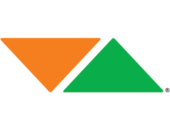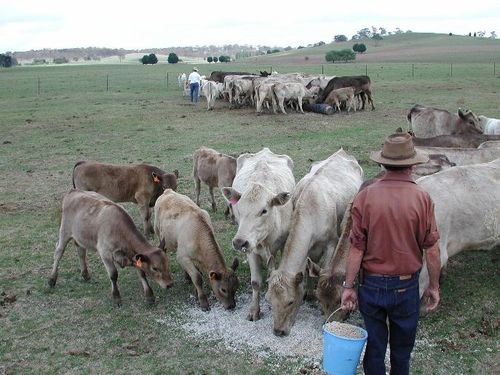“I enjoyed your article about cottonseed, but what about gossypol and aflatoxin?”
Good point! I concentrated on the nutritional aspects of cottonseed and did not cover the potential problems with cottonseed. Gossypol is always present in cottonseed. It is a chemical the plant developed through time to help retard insect damage. However, it can be toxic to animals in sufficient intakes.
Whole cottonseed contains two types of gossypol, bound and free. Bound gossypol is tied up by other compounds in the seed and is unavailable to the animals, and as such is of little consequence. Free gossypol, however, is available to animals and can cause problems. According to Dr. Millard Calhoun at the Texas Agricultural Experiment Station at San Angelo, upland cottonseed (the fuzzy kind with the linters on it) has from 0.47% to 0.63% of free gossypol in it.
Non-ruminants, swine, chickens, and horses, are more susceptible to gossypol poisoning because they don’t have a rumen to detoxify it. It is not recommended that you feed whole cottonseed to these animals. However, the process of making cottonseed meal, the expanding, crushing, and solvent extracting of the oil, creates heat which ties up the gossypol leaving the meal with only a level of 0.06% free gossypol making the cottonseed meal safer to use.
Ruminants, as I mentioned, are able to detoxify the gossypol in the rumen. So, there is much less chance of a mature ruminant having gossypol toxicity. I use the term “mature” ruminant, because young “immature” ruminants can die from gossypol toxicity. The rumen doesn’t begin to work well in young ruminants until they are around 6 to 8 weeks of age in lambs, kid goats, and fawns, and about 2 to 3 months in calves. My recommendation is to not give large amounts of either cottonseed, or cottonseed meal, to calves under 300 pounds of weight.
Don’t let me scare you. Cottonseed is safe for all but the very young ruminants. The dairy industry regularly feeds around 8 to 10 pounds per day to high producing cows with no ill effects.
The symptoms of gossypol toxicity are depression, loss of appetite, diarrhea, weight loss, weakness. These are similar symptoms to many other diseases, but if you have been feeding whole cottonseed and you see these symptoms, you may have a problem. A liver biopsy can give conclusive evidence of gossypol toxicity, so consult your veterinarian if you think you have problems.
One problems that is associated with high levels of gossypol intake is infertility in males. So be careful if you’re feeding high levels of cottonseed to your breeding males. If they need a lot of supplement, mix cottonseed with some other source of feed to dilute the problem. Lower levels of intake, say under 6 pounds per day, should not be a problem.
Alfatoxin is another potential problem with cottonseed, as well as corn. Aflatoxin is a fungus that can grow on seeds when conditions are right. In Texas, the “right conditions” are considered to be 5 days with no temperature less than 80 degrees, an a moist environment.
As you can guess certain parts of the country are more likely to have aflatoxin problems. These would primarily be the more southern hot, humid areas. However, if environmental conditions are right, it can occur anywhere.
Aflatoxin can only be seen under a black light. Some people will tell you that corn with aflatoxin has a pink color to it. But that’s not necessarily true. Only a lab test that isolates the aflatoxin and views it under a blacklight can give a positive identification of it.
So should you be worried? Yes, and no. If you use whole cottonseed as a supplement, ask about aflatoxin levels. Ask them to show some lab results from this year’s crop, then the seed should be fine. Don’t feel like they are disclosing everything? Go somewhere else. A good rule of thumb is to see if they are selling cottonseed to any dairies. The level of aflatoxin allowed in dairy feed is only 20 parts per billion (PPB), and the milk is checked every time it is delivered. So if they are selling to dairies, chances are it’s safe for your livestock.
The allowable levels of aflatoxin in feeds for animals are:
| Dairy Cattle | 20 PPB |
| Beef Cattle | 100 PPB |
| Slaughter Calves | 300 PPB |
| Sheep & Goats | 100 PPB |
| Deer | 50 PPB |
Aflatoxin is a known carcinogenic and causes liver damage. Livestock don’t die rapidly from aflatoxin. The liver becomes damaged and deteriorates over time. As it progresses, the animals begin to lose weight and eventually die. So you have to be vigilant about it up front.
Don’t let your concerns about these two potential problems keep you from feeding cottonseed. Gossypol is a problem that has been with us a long time and is not a problem unless cottonseed intake reaches very high levels.
Aflatoxin needs to be monitored. Be wary of real bargains in either cottonseed or corn. Ask for an aflatoxin test. It’s better to be safe than sorry with aflatoxin.
Got a question? Ask our experts! Message us on Facebook.
Interested in our products? Click here.


